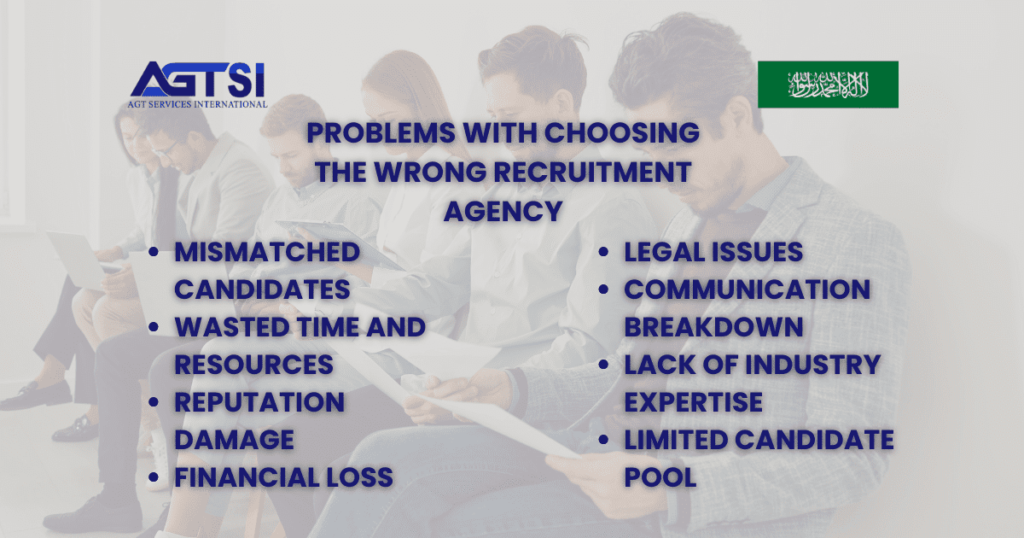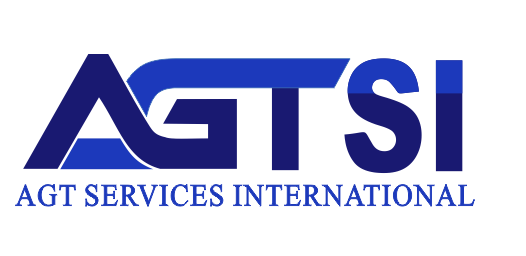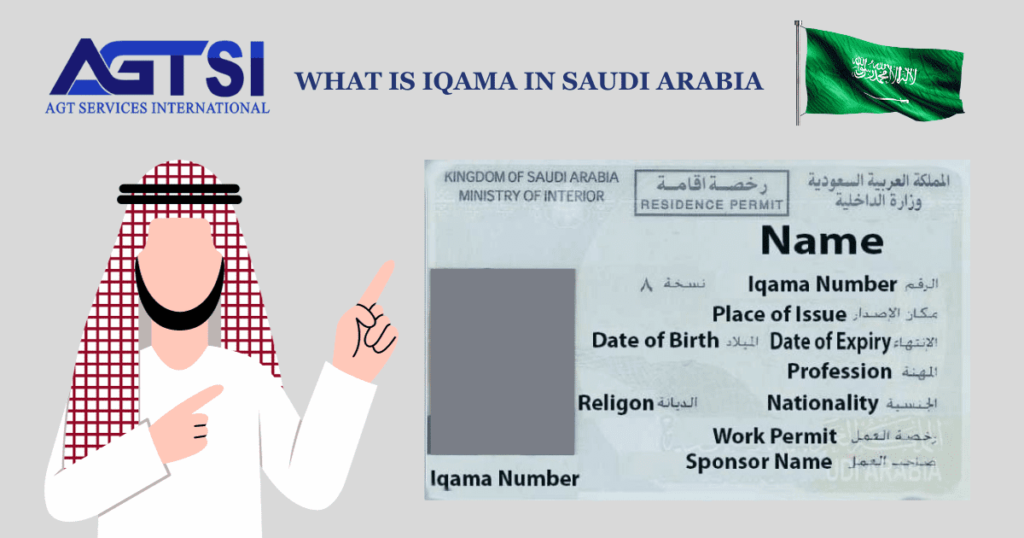Introduction:
Finding the right individuals for your business in the ever-changing job landscape can be a bit challenging. Now, different agencies help with hiring, making things a bit easier. In this guide, we’ll look at the important steps for picking the best recruitment agency for your business. We’ll learn from experts and focus on what makes a recruitment agency good.
So, if you’re wondering how to get the right Employees for your company, keep reading! We’re going to break it down step by step, making it easy for you to choose the right recruitment agency.
Also Read: How do Staffing Agencies Get Contracts?
Also Read: What is a Manpower Recruitment Agency?
How to Choose the Right Recruitment Agency? 10 Easy Steps
Now that we understand the benefits, let’s look at how to pick the right recruitment agency for your business in a simple way. Think of it like finding the best match for your needs. We’ll follow a step-by-step plan to make sure it’s a good fit for your company.

Step 1. Research and Shortlist
When you’re looking for a company to help you find employees, you should do some research. Use the internet, ask people in the industry, and read reviews to make a list of potential firms. Look for companies that have a good track record and happy clients. This way, you can find a recruitment agency that’s just right for your hiring needs.
Step 2. Identifying Your Hiring Requirements
When picking a recruitment agency, first figure out what you need: how many people, what kind of jobs (entry-level, executive, temporary, or permanent), and specific skills required. Ask potential hiring agencies about their operational history, clients, and turnaround time to gauge their efficiency and expertise. This helps you choose the right agency for your company in a smart way.
Questions to ask recruitment agencies: What is the duration of their operational experience? Whom have they collaborated with? And, what is their usual timeframe for delivering results?
Step 3. Choosing the Right Recruiting Agency Type
When opting for a recruitment agency, start by pinpointing the type of agency that suits your hiring needs. If you’re after temporary roles, go for a staffing agency; for long-term positions, opt for a traditional recruitment agency. Additionally, assess the agency’s specialization – a general recruiter for diverse needs, a staffing agency for temporary roles, or an executive agency for top-level positions. The key is aligning the agency’s focus with your specific industry or job requirements, ensuring a seamless and effective hiring process fitted to your organization’s needs.
Also Read: How Recruitment Agencies Get Clients?
Step 4. Checking Affordability
When choosing a recruitment agency, assess the cost of services in relation to your budget, factoring in the number of positions, industry specifics, and pay estimates. Once shortlisted, delve into affordability by inquiring about fees, payment terms, and additional costs. Prioritize value, focusing on the agency’s ability to deliver quality candidates tailored to your needs. Striking a balance between cost and excellence ensures a successful and budget-friendly recruitment process.
Step 5. Checking the Expertise of the Recruitment Agency
In choosing a recruitment agency, streamline your approach. Begin by engaging with potential agencies and understanding their procedures and pre-screening methods. Assess their reliability through client testimonials. Prioritize expertise by selecting agencies with a successful track record in your industry. Look for a demonstrated understanding of market trends, compensation rates, and industry standards. This focused strategy ensures a precise and unique method for selecting the right recruitment partner tailored to your needs.
Also Read: How to Calculate Recruitment ROI?
Step 6. Investigate Guarantee Period and Terms
Reputable recruitment agencies often provide a guarantee period for their placements. Inquire about the selection agency’s guarantee period and terms. This ensures that if a hired candidate leaves within a specified timeframe, the agency will offer a replacement or refund.
Step 7. Review Client Lists and Social Media Presence
Selecting a recruitment agency warrants a brief but focused examination. Start by reviewing their website for updates and user-friendly features, indicating professionalism. Assess social media engagement, prioritizing proactive participation and prompt responses. Delve into online reviews for client satisfaction insights.
Equally vital is scrutinizing client lists, emphasizing experience in your industry. A well-established online presence reflects transparency and reliability. By combining insights from the website, social media, reviews, and client lists, you can efficiently choose an agency aligned with your hiring needs.
Step 8. Seek Recommendations and Referrals
Connect with companies within your sector to seek suggestions or endorsements. Insights and firsthand experiences shared by colleagues offer valuable perspectives on the effectiveness of various recruitment agencies.
Step 9. Look for Additional Services
Consider the range of additional services offered by the recruitment agency. Some agencies provide psychometric testing, contract and permanent employment services, executive search, project assistance, and managed services. Assess if these offerings are in harmony with your specific requirements.
Step 10. Conduct a Final Comparison
Before making a decision:
- Conduct a final comparison of the shortlisted agencies.
- Consider factors such as expertise, affordability, guarantee terms, and additional services.
- Select the agency that most closely resonates with your hiring objectives and corporate ethos.
Also Read: Recruitment Agency Fee Structure
Also Read: Art of Negotiating Recruitment Agency Fees With Clients
Why Use a Recruitment Agency?
The contemporary job market is highly competitive, giving candidates the upper hand. This makes it challenging for organizations to identify and hire the perfect candidate. Recruitment agencies play a pivotal role in simplifying this process. Here’s how they benefit organizations:

1. Time Savings:
As per research conducted by SHRM, the typical duration to complete a hiring process and fill a position stands at 42 days. Recruitment agencies can significantly reduce this time by leveraging their expertise and established candidate pools. Navigating the intricacies of recruitment, including tasks like posting job listings, evaluating resumes, and conducting interviews, often proves time-consuming. Recruitment agencies play a pivotal role in optimizing and expediting these processes, ultimately saving valuable time for both employers and job seekers.
2. Quality of Hires:
Recruitment agencies specialize in various sectors and roles, ensuring a skilled and efficient talent pool. Leveraging their specialized knowledge, they conduct meticulous candidate screenings, guaranteeing that your company only engages with the most suitable individuals. These agencies typically maintain a vast talent reservoir encompassing a variety of skill sets.
This enables them to connect employers with individuals who possess the specific qualifications and experience required for a given position.
3. Tackling High-Demand Verticals:
In industries facing fierce competition for top talent, recruitment agencies excel in convincing and attracting exceptional candidates. This is particularly crucial for senior roles or high-demand sectors such as technology, marketing, and hospitality.
4. Expertise in Specialized Industries:
Several staffing firms focus on specific industries or job sectors, leveraging their expertise to comprehend the precise skills and qualifications essential for distinct positions. This specialized approach enhances the likelihood of creating optimal matches between candidates and available job opportunities.
5. Cost Savings:
While engaging recruitment agencies incurs a cost, the investment is frequently warranted by the efficiency gains in time and resources during the hiring process. For employers, this can translate to cost savings in the long run. Recruitment agencies ensure job advertisements appear on top job boards. Reduces costs associated with CV reviews and initial conversations.
Agencies advise on fair pay, increasing the chances of hiring top candidates. Future hiring costs may decrease with repeated use of the same agency.
6. Added Security:
A unique advantage of using a recruitment agency is the assurance they provide in terms of new hire retention. Many reputable agencies provide assurance periods, ensuring replacements in the event of a recruited candidate’s departure within a defined timeframe.
7. Guarantee Periods:
Reputable recruitment agencies often provide guarantee periods during which they monitor the performance of the placed candidate. If the candidate leaves the position or is terminated within this period, the agency may offer a replacement or refund, providing added security for employers.
8. Access to Top Talent:
Recruitment agencies have networks and tools to identify and attract top-tier talent. This is particularly beneficial for employers seeking candidates with specific skills or experience in competitive industries.
9. Confidentiality:
When employers prioritize confidentiality in their hiring processes, the utilization of a recruitment agency adds an extra level of discretion. Such agencies excel in conducting searches discreetly, withholding the hiring company’s identity until an ideal candidate is discovered.
Also Read: 10 Steps Saudi HR Managers Can Follow to Choose the Best Manpower Recruitment Agency
10. Support for Job Seekers:
Recruitment agencies extend valuable support to job seekers by providing guidance, career advice, and exclusive access to unadvertised job opportunities. Additionally, they offer insightful perspectives on market trends and salary expectations to enhance the job search experience.
11. Temporary and Contract Roles:
Recruitment agencies play a crucial role in filling temporary, contract, or seasonal positions. This flexibility benefits both employers, who may have short-term staffing needs, and job seekers looking for interim opportunities.
12. Market Knowledge:
Recruitment firms keep abreast of market trends, salary standards, and industry advancements, providing valuable insights to guide employers and job seekers in making well-informed choices regarding job offers and candidate selection.
Also Read: How to Start a staffing Agency with No Money from Home?
Measuring Recruitment Agency Performance:
To ensure ongoing success, it’s essential to measure the performance of your chosen recruitment agency. Here are some key metrics to consider:

1. Customer Satisfaction:
Gather feedback from your hiring team to evaluate satisfaction levels. Look at retention rates, referrals, and repeat business indicators.
2. Fill Rate:
Measure how efficiently the agency fills your job openings. A high fill rate indicates effectiveness in finding and hiring talent.
3. Time to Fill:
Evaluate how quickly the agency fills your positions. A low time-to-fill is indicative of a responsive and efficient agency.
4. Quality of Hire:
Assess the performance of candidates placed by the agency. Factors such as productivity, engagement, and turnover can indicate the quality of their hires.
Also Read: How to Start a Recruitment Agency?
Also Read: Types of Recruitment Agencies
Problems with Choosing the Wrong Recruitment Agency
1. Mismatched Candidates
Ineffective agencies may provide candidates who don’t meet your requirements, leading to a mismatch in skills and cultural fit.
2. Wasted Time and Resources
Poorly performing agencies can waste your time with lengthy hiring processes and drain your resources without delivering quality hires.
3. Reputation Damage
Engaging with a subpar agency can harm your company’s reputation, both with potential employees and within your industry.
Also Read: What is Staffing Agency?
4. Financial Loss
Incorrect hires due to a wrong agency choice can result in financial losses, including recruitment fees and potential rehiring costs.

5. Legal Issues
Inadequate vetting processes by the agency may expose your company to legal issues, especially if placed candidates don’t meet necessary qualifications.
6. Communication Breakdown
Choosing a poorly communicative agency can lead to misunderstandings and ineffective collaboration, hindering the recruitment process.
7. Lack of Industry Expertise
Agencies without industry expertise may struggle to understand your specific needs, resulting in the selection of unsuitable candidates.
8. Limited Candidate Pool
Some agencies may have a restricted candidate pool, limiting your access to diverse and qualified talent.
Also Read: What is Permanent and Contract Recruitment?
Questions to Ask a Staffing Agency Recruiter?
- What industries and job positions does your staffing agency specialize in?
- Can you provide examples of successful placements you’ve made in the past?
- How do you source and assess candidates to ensure they meet our company’s requirements?
- What is the typical timeframe for filling a job opening?
- What kind of support and communication can we expect throughout the recruitment process?
- How do you handle candidate background checks and screening?
- What is your fee structure, and are there any additional costs we should be aware of?
- Can you explain the guarantee or replacement policy in case a hired candidate doesn’t work out?
- How does your selection agency stay updated on industry trends and changes in the job market?
- Do you offer any additional services beyond traditional staffing, such as temporary-to-hire or executive search?
Final Thoughts:
Selecting the appropriate recruitment agency is a pivotal choice with the potential to profoundly influence the growth trajectory of your company. By following these steps and measuring performance using key metrics, you can partner with a onboarding agency that aligns with your hiring goals and contributes to the overall success of your business. Remember, the goal is not just to fill positions but to find the right talent that propels your company forward.
How does a recruitment company work?
Recruitment companies connect employers with potential candidates, handling the hiring process efficiently, from candidate sourcing to placement.
How do job recruitment agencies work?
Job recruitment agencies source and match candidates with job opportunities, streamlining the hiring process for both employers and job seekers.
How do recruitment agencies work?
Recruitment agencies work by bridging the gap between employers and candidates, facilitating the hiring process through services like candidate screening and job placement.
How much do recruiters charge per hire?
Recruiters typically charge a percentage of the hired candidate’s first-year salary, ranging from 15% to 25%, with variations based on factors like job level and industry demand.



















